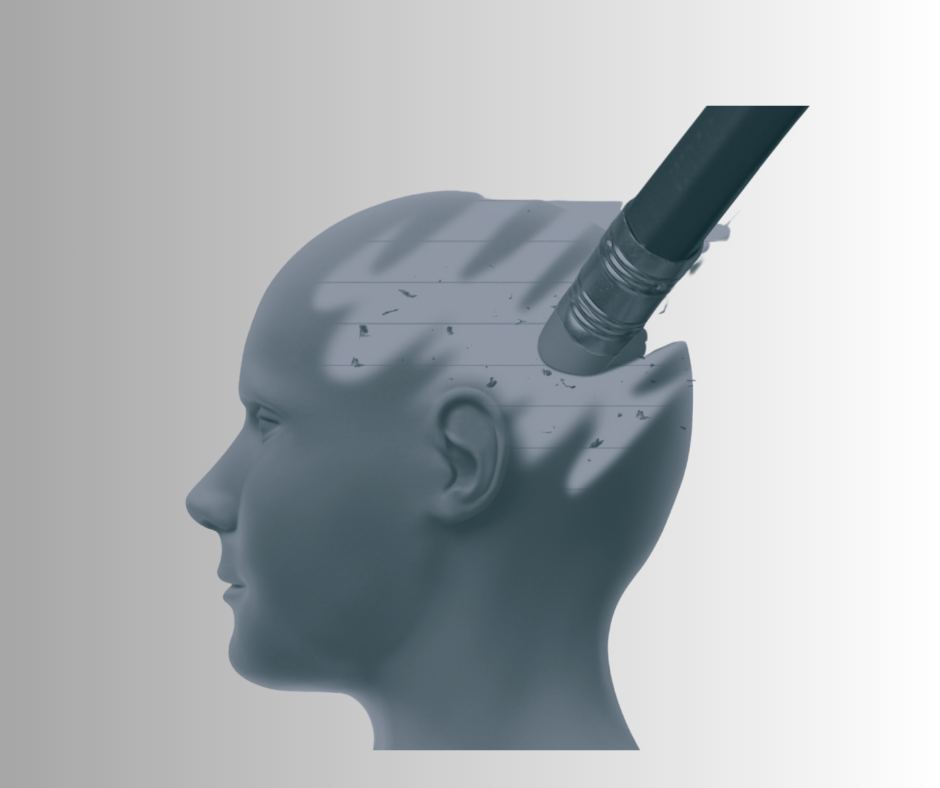A short guide to ward off cognitive decline and Mild Cognitive Impairment
Understanding and addressing age-related cognitive decline is essential as we all age. While these challenges are often a complex interplay of factors like cellular senescence, hormonal imbalance, and neuroinflammation, they sometimes manifest as what is clinically categorized as Mild Cognitive Impairment (MCI). Unlike dementia, which is a more severe form of cognitive decline, MCI represents a less drastic, yet still noticeable, decline in cognitive abilities including memory, attention, and problem-solving skills.

Symptoms and Risk Factors: Early Signs and Underlying Causes
Cognitive challenges often manifest in subtle changes in behavior, thought patterns, and emotional regulation, which can be observed in various ways. For example, difficulty in planning or organizing tasks could be an early sign of executive dysfunction, an area of cognitive function responsible for managing such skills. A struggle to engage in conversation, frequently losing one's train of thought, or experiencing difficulty in finding the right words could be related to language-based cognitive issues. Misplacing items is a common occurrence for many, but if it happens frequently and is accompanied by an inability to retrace steps to locate them, it may indicate problems with memory and spatial awareness. Emotional regulation is another aspect of cognition, and significant mood swings, irritability, or changes in personality might be indicative of cognitive decline or other underlying neurological conditions.
In terms of risk factors for cognitive decline, age is a major one. As we get older, the risk of experiencing some form of cognitive impairment increases, making age a significant factor for conditions like Alzheimer's disease. A sedentary lifestyle that lacks physical activity can also contribute to poor vascular health, affecting the blood supply to the brain and thus increasing the risk of cognitive decline. Additionally, underlying medical conditions like diabetes, hypertension, and obesity can lead to poor vascular health, which is another risk factor for declining cognitive function. Mental health conditions such as depression can also contribute to cognitive difficulties.
Genetics play a role too; a family history of neurodegenerative diseases like Alzheimer's or Parkinson's increases one's risk. Dietary habits can also affect cognitive health. Consuming a diet high in processed foods, saturated fats, and sugar has been linked to poorer cognitive function. Chronic stress, which elevates cortisol levels, can impair cognitive function over the long term. Substance abuse, including chronic use of alcohol and drugs, can have severe neurological and cognitive consequences. Lower levels of education and a lack of cognitive stimulation, like reading or engaging in mentally challenging activities, are correlated with higher rates of cognitive decline. Finally, exposure to environmental factors like pollutants, heavy metals, and other toxins can also contribute to cognitive issues.
Lifestyle and Dietary Interventions: From Diets to Brain Games
In terms of lifestyle modifications and nutritional interventions, a variety of evidence-based approaches can be beneficial. Adopting dietary patterns such as the Mediterranean, DASH (Dietary Approaches to Stop Hypertension), or MIND (Mediterranean-DASH Diet Intervention for Neurodegenerative Delay) diets have shown promising results in multiple studies for preserving cognitive function. Caloric restriction has also been observed in clinical trials to have potential cognitive benefits, likely due to its effects on metabolic pathways and inflammation. Engaging in cognitive activities such as playing chess or learning a new language can also offer benefits; a meta-analysis in the journal "Psychological Medicine" found that cognitive training could lead to improvements in memory and attention. Moreover, sleep quality and stress management, crucial for neurocognitive health, are backed by a plethora of studies. Physical exercise is another key component, supported by research published in journals like "Neurobiology of Aging," which suggests that it can stimulate neurogenesis—the formation of new neurons—and improve cerebral blood flow. Even moderate caffeine intake, around 1-2 cups of coffee per day, has been shown in some studies to have neuroprotective effects.
Nutritional Supplements: A Double-Edged Sword
Supplementation can also play an important role in supporting cognitive health, however nutritional supplements ARE NOT a substitute for other approaches to improving cognitive wellness. Acetyl L-Carnitine, for instance, has demonstrated neuroprotective and memory-enhancing effects in some clinical trials. Ashwagandha, a well-known adaptogen, has been studied for its potential in reducing stress, which indirectly may benefit cognitive function. Coenzyme Q10 plays a critical role in cellular energy production, including in neurons. DHEA (Dehydroepiandrosterone), Ginkgo Biloba, and other supplements like Magnesium, Phosphatidyl Serine, and Pyridoxal-5-phosphate (a form of Vitamin B6) have also been researched for their potential roles in cognitive health. Vitamin C, a powerful antioxidant, is thought to mitigate oxidative stress, which is a factor in cognitive decline. It cannot be stressed enough that cognitive care should be approached carefully and ideally under medical supervision.
Disclaimer: Prioritize Professional Medical Consultation
Always consult healthcare providers for personalized advice, as this article should not replace professional medical counsel.
Mentis – Memory and Cognition Support
Vitasecrets' Mentis was developed to improve memory and cognition. It is also suitable for individuals who are older, menopausal women, or men going through andropause (low testosterone level). Mentis has also shown to be effective in improving cognition & memory recall in individuals with diminished cognition due to the aging process.
The ingredients in Mentis include Ginkgo Biloba, Ashwagandha, Phosphatidyl Serine (PS), Dehydroepiandrosterone (DHEA), Huperzine, Guarana Extract, Phosphatidyl Choline, Acetyl L-Carnitine (ALC), and Coenzyme Q10 (CoQ10).



